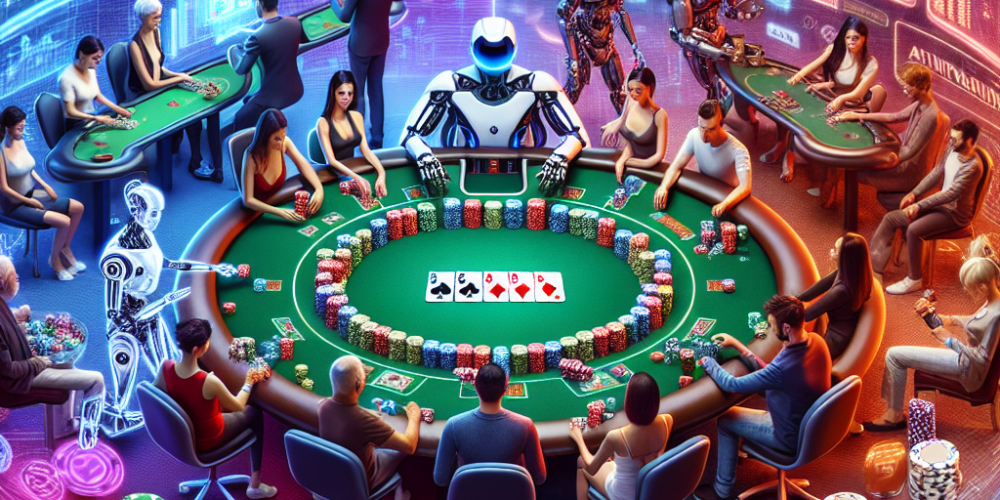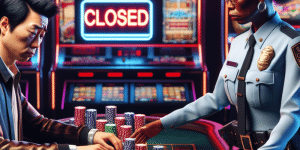On November 27, 2025, the poker world was buzzing with the results of the prestigious Big Deal for One Drop event. The high-stakes tournament, renowned for its elite field and charitable contributions, concluded with a thrilling victory that captivated the community. At the same time, PokerNews found itself in the midst of controversy after upsetting poker professional Shaun Deeb, highlighting tensions within the industry.
The Big Deal for One Drop, held annually, attracts some of the best poker talents from around the globe, each vying for the substantial prize while supporting a worthwhile cause. This year, the event lived up to its reputation for drama and skill, with the final table presenting a showcase of strategic brilliance. The winner, whose remarkable play was the talk of the tournament, demonstrated both seasoned expertise and a touch of flair, ensuring that the event remained memorable for players and fans alike.
In the backdrop of poker’s traditional glamour, the industry faces an evolving landscape marked by technological advancements, particularly in artificial intelligence. AI-driven tools have increasingly permeated poker analytics, offering players new ways to enhance their strategies. While some players embrace these tools, others express concern about diminishing the human element that has long been a core of poker’s appeal.
“The game is changing,” an insider mused, reflecting on the balance between maintaining poker’s classic charm and embracing innovation. The sentiment captures the ambivalence felt by many in the community as they navigate this technological shift. Proponents argue that AI can level the playing field, providing less experienced players with insights previously reserved for the elite. Conversely, critics warn that over-reliance on AI could undermine the skill and psychological acumen that define great poker.
Meanwhile, PokerNews became embroiled in a separate controversy involving Shaun Deeb. Known for his outspoken nature and competitive spirit, Deeb found himself at odds with the publication over perceived editorial missteps. The nature of the disagreement was not publicly detailed, but it underscored the challenges media outlets face in balancing timely coverage with the expectations of a fiercely passionate audience.
As Deeb reportedly expressed his discontent, the incident became a flashpoint for broader discussions about media accountability in the digital age. “It’s not just about the cards on the table; it’s about how we share those stories,” community members reflected on the role of journalism in shaping poker’s narrative. Such tensions highlight the delicate interplay between traditional reporting and the immediacy of online content, where speed often competes with accuracy.
The poker industry, a microcosm of larger market trends, is no stranger to adaptation. The rise of online platforms transformed poker from smoky backrooms to digital arenas, democratizing access and expanding its global reach. As with any industry, shifts in technology and audience engagement demand a recalibration of strategies to remain relevant and competitive.
From an economic perspective, the poker landscape is influenced by fluctuations in player participation and sponsorship opportunities. Major events like the Big Deal for One Drop not only draw attention but also impact the industry’s financial health, with ripple effects reaching sponsorship deals and viewership figures. While the allure of high-stakes poker remains robust, maintaining interest requires an ongoing dialogue between tradition and innovation.
In contrast, some voices within the community argue for preserving the authenticity of the game. “Poker’s charm lies in its unpredictability and the human stories behind each hand,” a long-time player commented on the enduring appeal of face-to-face interaction. This viewpoint advocates for a cautious approach to integrating AI, ensuring it augments rather than overshadows the game’s intrinsic qualities.
As the poker world continues to grapple with these dynamic changes, the discourse around AI, media integrity, and the essence of competition remains vibrant. The outcome of the Big Deal for One Drop, alongside the PokerNews controversy, serves as a reminder of the complexities inherent in balancing progress with poker’s storied traditions.
Looking ahead, the industry is poised to explore new territories, both digitally and in live events. With AI’s role in poker still evolving, stakeholders are challenged to craft a vision that honors the game’s past while embracing its future potential. As these narratives unfold, the global poker community remains at the heart of discussions, shaping the trajectory of the game they love.
In sum, the poker industry stands at a crossroads, navigating the confluence of technology, media, and tradition. The Big Deal for One Drop and the ensuing PokerNews controversy reflect the sector’s ongoing dialogue about its identity and direction. As players, organizations, and audiences weigh in, poker’s future will be defined by how it harmonizes these diverse elements in a rapidly changing world.

David Garato is a luminary in gaming journalism, renowned for peeling back the curtain on the gaming world with his witty and insightful commentary. A decade into weaving stories from the pixelated edges of indie games to the expansive universes of AAA titles, David’s work is a thrilling blend of analysis and adventure. When not writing, he’s live-streaming, sharing his gaming exploits with an engaged and growing audience. David doesn’t just write about games; he lives them, making him a trusted guide in the gaming community.
















